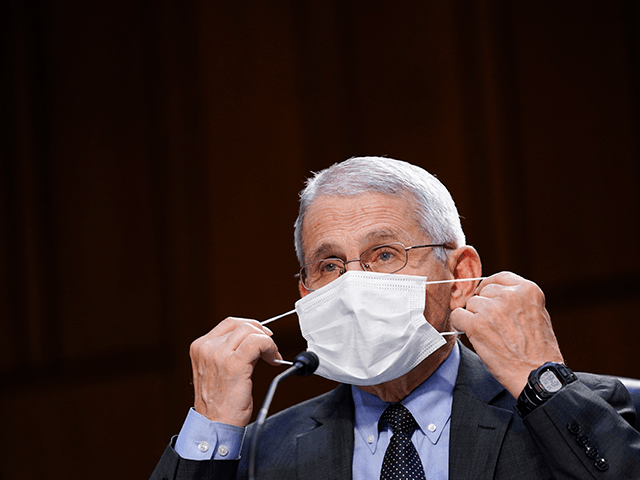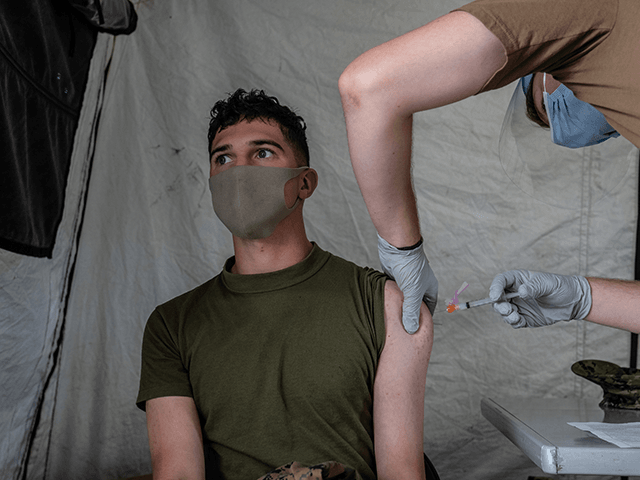Following the Food and Drug Administration’s (FDA) announcement that it had officially approved the Pfizer vaccine for the coronavirus, taxpayer-funded National Public Radio (NPR) turned to Dr. Anthony Fauci, who said there won’t be “some good control” of the virus until next year.
“If all things go the way we want them to go and we’re really successful with this BLA [Biologics License Application] that we just discussed over the last couple of minutes and we get really the overwhelming majority of the people vaccinated, I think as we get into the fall and the winter, we could start to really get some good control over this as we get into 2022,” Fauci said on Monday in an interview on All Things Considered.

Dr. Anthony Fauci, director of the National Institute of Allergy and Infectious Diseases, adjusts a face mask during a Senate Health, Education, Labor and Pensions Committee hearing on the federal coronavirus response on Capitol Hill on March 18, 2021 in Washington, DC. (Photo by Susan Walsh-Pool/Getty Images)
Fauci, infectious disease specialist with the National Institute of Health and chief medical adviser to the Biden White House, also predicted the FDA approval will result in more people getting vaccinated and will make it easier for vaccine mandates, something he and left-wing NPR support.
“What I think is going to be equally as impactful would be that there are going to be organizations and enterprises and companies – whoever – are going to feel much more empowered now to mandate vaccines,” Fauci said.
The report cited how the Pentagon is now going to force troops to get vaccinated following FDA approval. Fauci hopes that policy is embraced around the country.

A United States Marine receives the Moderna coronavirus vaccine at Camp Foster on April 28, 2021 in Ginowan, Japan. A United States military vaccination program aiming to inoculate all service personnel and their families against Covid-19 coronavirus is under way on Japans southernmost island of Okinawa, home to around 30,000 US troops and one of the largest US Marine contingents outside of mainland USA. (Photo by Carl Court/Getty Images)
“The Pentagon, colleges, universities and even major organizations of places of employment, large corporations may say, this is it,” Fauci said. “If you want to work for us, you’ve got to be vaccinated. So I think you’re going to see a lot more mandates and hopefully a combination of people who, on their own, decide because of this stamp of approval that they want to get vaccinated, combined with the mandates that we may be able to make a big dent in that 90 million people or so who are eligible but not vaccinated.”
Follow Penny Starr on Twitter or send news tips to pstarr@breitbart.com.

COMMENTS
Please let us know if you're having issues with commenting.